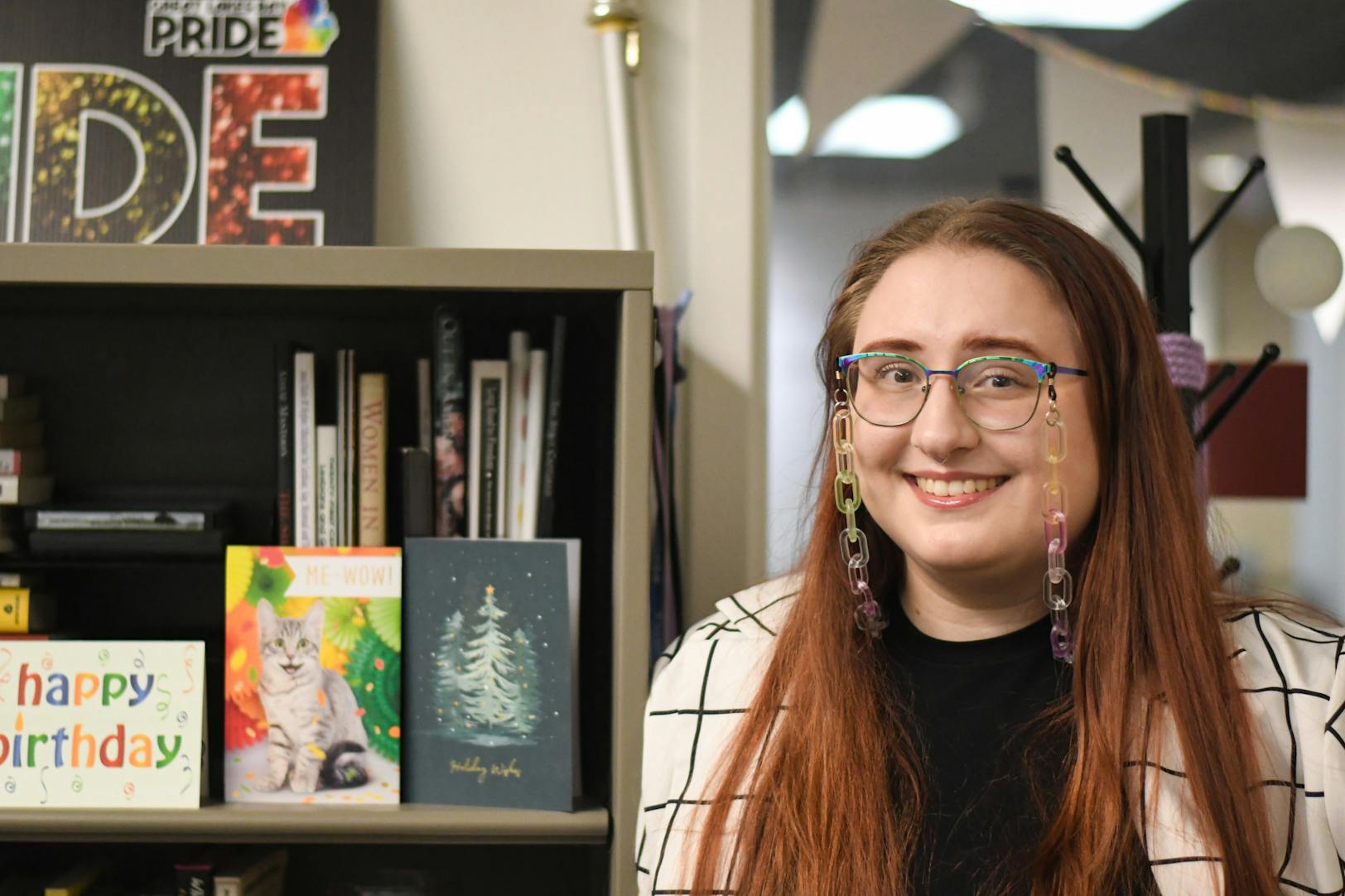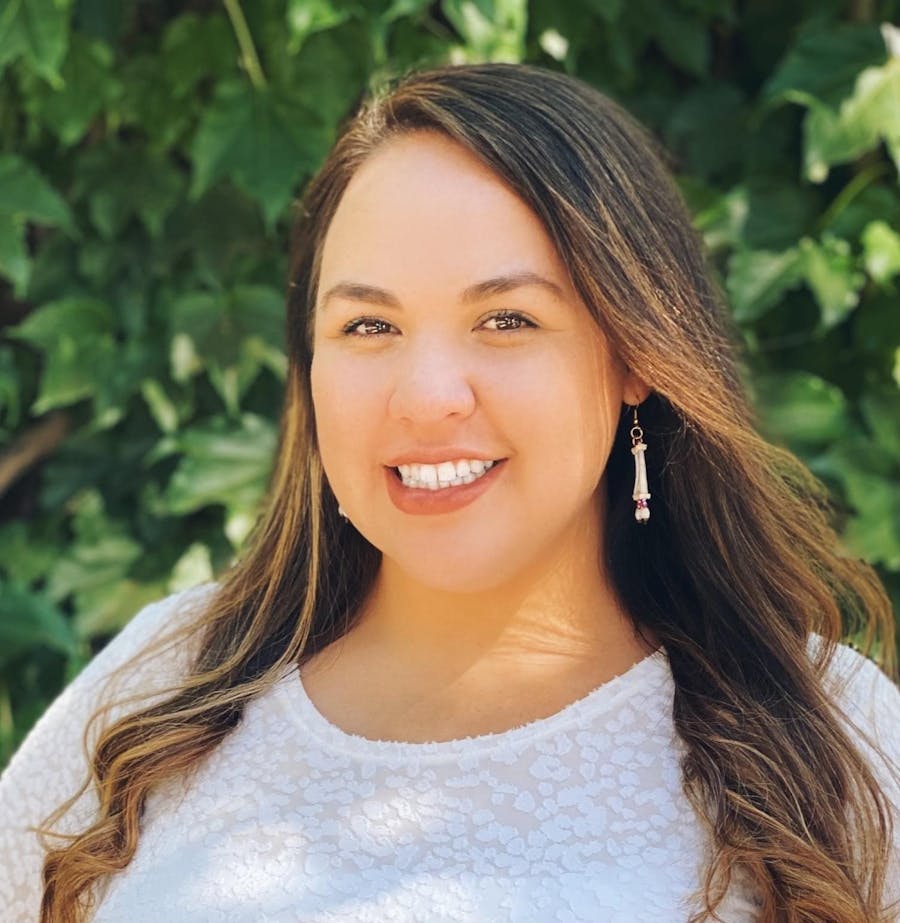Leading the change
Meet the new faces at the Center for Student Inclusion and Diversity
For Bee Taylor, the college experience meant finding work they were passionate about and discovering their identity. They said college was a comfortable space where they were able to embrace their queer identity.
This safety and opportunity to learn is what Taylor said they want to bring to Central Michigan University students in their new role as a director of LGBTQ Services and Gender Equity Programs.
“College is a really important and pivotal point for a lot of queer students, because they’re away from their family and for the first time able to, one, focus on just themselves, and two, learn about different people,” they said.
Taylor went to Western Michigan University to study music, but they soon found out it was not for them. They also worked at Western’s Office of Lesbian, Bisexual, Gay and Transgender Student Services center, where they were an ally to support the community.
“My journey through higher education was a little bit messy,” they said. “I had a bit of a life crisis, and I didn’t really know what to do.”
Before going to Western, Taylor said they didn’t have time to learn about their sexuality or gender because “family life was really chaotic at home, and there was a lot of stuff going on.”
“As a young person, I always said that I was straight, but that if I met a girl who I really liked and thought I wanted to date, I would date her,” Taylor said. “I cried the day that marriage equality passed.”
At college, Taylor was comfortable to come out to their friends and colleagues at the LGBT Student Services office. Soon, they told their parents about their sexuality. By the end of their sophomore year, they were using they/them pronouns exclusively.
That was also when the dream and plan to become a director of an LGBTQ+ center was born.
“My director at the time ... was like a mentor to me. ... I was laying on the floor, and I was freaking out … he was like: ‘OK, well, you don’t know what to do. What do you want to do?’” Taylor said. “I was like: ‘Well, I want your job.’”
At that moment, they wrote in their passion planner that they would become the director of an LGBTQ+ center. And at the end of this August, Taylor arrived to take their dream position at CMU.
“It’s given me a lot of sense of pride, but also confidence that I can do the work and that students appreciate it, and it’s useful, and it’s beneficial,” they said. “I’m really proud of myself, but also excited to be here. This is … a type of institution that I’ve always wanted to work at.”
At CMU, Taylor said they want to focus on providing
programming, support services, advocacy, training and education for the campus community.
They said they are excited about the October and November events that will celebrate the LGBTQ+ History month, International Pronouns Day, National Coming Out Day and Transgender Day of Remembrance.
Taylor said they want the events to appeal to everyone. Their goal is to create a space where questioning or unsure
students have a safe space to explore their identities.
Taylor learned the importance of this while working at the University of Michigan-Dearborn.
According to the U of M website, 55% of the population in Dearborn is Arab-American. Taylor said the campus is also small, communal and many students are non-degree-seeking or non-traditional, which could be challenging.
“A lot of queer people of color come out a little bit later in life because they’re dealing with racism from day one, whereas as a young person, you may or may not be experiencing homophobia or transphobia at the time,” Taylor said.

They said even though they may not fully understand the experiences of people of color, their background makes them more sensitive to the diversity and understanding of many ways that people come out and experience sexuality.
Taylor had an opportunity to come across different cultures also because their stepmother is Filipino, their brother is mixed and their father is a citizen of Britain.
“I think having a much less-traditional or expected coming out makes me more sensitive to others who do not know for their whole life that they are a certain way,” Taylor said.
Some of their other goals are to have sexual health products and resources, such as a list of queer or trans people on staff or faculty, available for students.
They said they will also continue advocacy work making the campus climate more inclusive.
“I think our queer students often get overlooked, because a lot of them don’t complete school,” Taylor said.
In the United States, more than a third of LGBTQ+ students dropped out of a four-year college, transferred or considered dropping out, according to a 2022 study by the Williams Institute.
“I really hope that they can see that the work that I’m doing is here to help get students to matriculate and to be successful,” Taylor said. “I hope that they know that I am very similar or I have an experience that is very similar to a lot of students that are coming here.”

Kasey Perez
Kasey Perez
Kasey Perez, the new director of Indigenous Affairs at CMU, can also relate to students on Central’s campus.
Perez started her journey at CMU in 2009, when her mom, two sisters and three cousins enrolled.
“I was just able to really find my home at CMU,” Perez said. “I just had such a good experience, and I ended up being able to show that and tell that to my younger sisters. … We’re really also [a] very traditional family, so we wanted to be involved with Native American programming … and when we’ve seen how much CMU does within that area, that became a driving force for our whole family to be involved.”
Perez is from Hannahville Indian Community, Band of the Potawatomi that’s in the Upper Peninsula. She said she went to a small K-through-12 school on the reservation with her cousins.
“I had a culture shock when I came to Mount Pleasant, because I was like, ‘Oh, Mount Pleasant’s so big,’” Perez said. “Now I’m like, ‘Mount Pleasant is not that big.’”
At CMU, Perez was on the PowWow planning committee, and said that the Office of Indigenous Affairs helped her to connect with other Native students.
“When you come from a traditional family or a tight knit community, a small reservation, it’s really hard to … not be around anybody that you grew up with,” she said. “I was able to meet other Native students and network through the office, and then they helped me with professional development, everything, even personal things where I would be homesick, or if I was going through mental health things myself.”
After college, Perez worked at Bay Mills Community College as an academic advisor. Back in Mount Pleasant, she was in the Saginaw Chippewa Indian Tribe’s education program and then the Student Transition Enrichment Program (STEP) academic advisor at CMU.
Now, as the director of Indigenous Affairs, Perez hopes to re-create the home environment for Native students that she felt during her college years.
“I feel like it’s very full-circle moment for me, and I feel like when people say that it’s very full-circle, they mean that they’re almost at some sort of end,” Perez said. “But I feel like it’s very full-circle beginning for me.”
One of her goals is to research how Indigenous students would be able to smudge with sage on campus. She is also excited for the advocacy work and creating “very robust programing” to get people involved with Native American Heritage Month on campus in November.
“You don’t need to be Indigenous … to be involved with the programming and advocacy,” Perez said. “Everybody is welcome here. We want you to come in. We want you to learn.”
Perez said it is important for CMU students to learn about Native American culture because CMU is wearing the Chippewa name.
“The more programming we go to, the more we understand one another, and … the less room for ignorance there is, the less room for misunderstanding and miscommunication,” Perez said. “It’s a beautiful thing when we can start understanding each other’s cultures … and when we do that, we start seeing similarities between our cultures. … The differences become smaller.”



